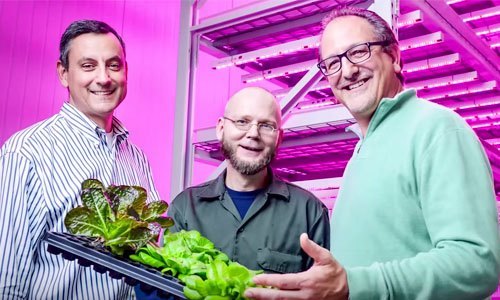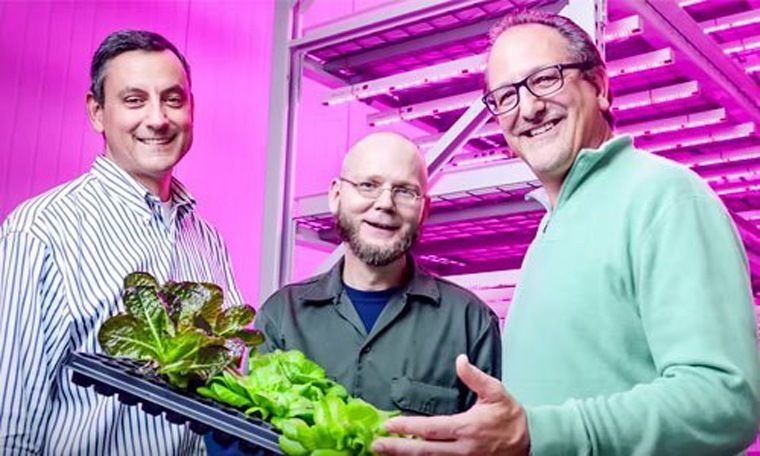

The PBS series The Good Stuff looked into eating bugs as part of their series on the “Future of Food.” As part of that series, they also investigated vertical farming, which has gained much attention in the U.S., including the news that the world’s largest vertical farm recently broke ground in Newark, New Jersey.
“The world requires an area of farmland the size of South America to feed itself,” says The Good Stuff. With the global population expected to reach a staggering 10 billion by 2056 and only so much arable land available, many are wondering how we will feed future generations.
And climate change is only confounding the problem.
“What we’re seeing is a climate change issue that’s severely affecting agriculture outdoors. We’re seeing urbanization like crazy and we’re seeing an increase in human population,” Dickson Despommier, emeritus professor at Columbia University, says in the video. “You put those three things together and you’ve got another—I hate to use this cliché because everyone is using it now—but it’s a perfect storm for disaster.”
Despommier explains how he and one of his classes in 1999 came up with the idea, which eventually came to be known as vertical farming. Since then, the idea has been made into a reality (and a profitable one at that).
In this series, the hosts of The Good Stuff head to Green Sense Farms in Indiana to witness firsthand how the indoor farm works and to see if it’s really a feasible solution for growing the world’s food.
YOU MIGHT ALSO LIKE
5 Ways Vertical Farms Are Changing the Way We Grow Food
Bill McKibben: The Turning Point Towards a Low-Carbon Future
12 Universities Leading the Charge in Serving Locally-Sourced Food

 233k
233k  41k
41k  Subscribe
Subscribe 
